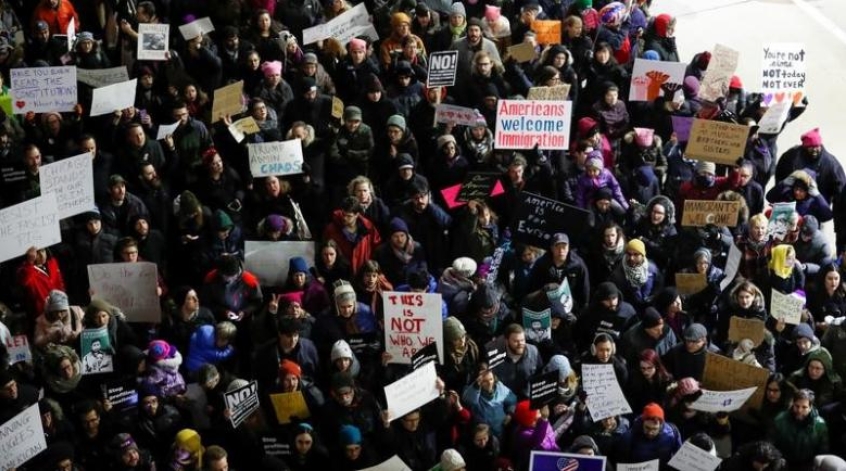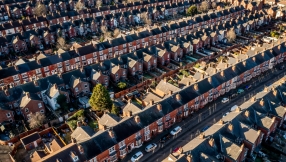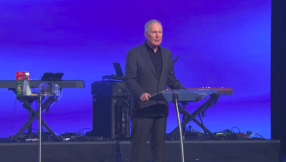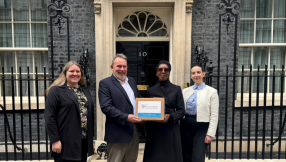
Trump's Refugee Ban: A Radical And Dangerous Departure From US Tradition
'Trump Should Read His Bible Before Enacting Discriminatory Policies': What Is The Meaning Of The Refugee Ban?
As is all too often the case in the UK, much of the media coverage in the US over Donald Trump's latest executive orders has blurred the line between asylum seekers and refugees on the one hand, and migrants and those merely travelling from one country to another on the other.
Much has (rightly) been made of the travel ban, with stars like the Olympic champion Mo Farah complaining that he may not be allowed to return to the US.
But here, we take a closer look at the effects of a connected but distinct and arguably even more serious move by Trump: suspending the US refugee programme for 120 days and permanently banning refugees fleeing the war in Syria as well as extending a temporary block on refugees from Iraq, Iran, Sudan, Somalia, Libya and Yemen for 90 days.
Charities as well as Barack Obama have warned that such discrimination represents a radical departure not just from the tradition of unity in diversity in America – the ultimate Western melting pot – but also from the Gospels.
If Trump thought that he could win over campaigning Christians by prioritising Christian refugees in Syria, he was mistaken.
"At the heart of the Christian faith is a clear command to 'love the stranger' and to stand with the vulnerable, whoever they may be. To follow Christian teaching means to welcome people in need – whatever their faith – not prioritise people who happen to share one's own beliefs," said Tom Viita, Head of Advocacy at Christian Aid. "A rejection of refugees, whatever their faith, is a rejection of Christian values. Trump would do well to read his Bible before enacting discriminatory policies...President Trump is now effectively ripping up the principle that every person, irrespective of their faith or nationality, has the right to seek protection and sanctuary."
Indeed, Trump's move threatens the international refugee system itself, which was created in the aftermath of the Second World War and has enabled millions of refugees to find sanctuary in other countries.
Today that need has never been greater.
As analysis by IRIN shows, Trump's refugee ban marks a serious setback for the UN's refugee agency, UNHCR, to urge wealthier states to accept more refugees at a time of record levels of global displacement.
A statement from the UNHCR and the International Organization for Migration points out that "the needs of refugees and migrants worldwide have never been greater and the US resettlement programme is one of the most important in the world".
UNHCR estimates that at least 1.2 million refugees are in need of resettlement.
As has been shown by the Brookings Institution, the international refugee system which was grounded in the 1951 Refugee Convention, has proved to be "remarkably adaptable" over the past six decades.
As the article for Brookings says: "Originally intended to assist those displaced by World War II, it has saved the lives of millions of women, children, and men fleeing communist countries, persecution by repressive governments, civil wars, ethnic cleansing, genocide, and criminal gangs. It has never functioned perfectly...But somehow, frayed at the edges as it is, the system has continued to meet the needs of both refugees and the international community."
Last year, the former UN secretary-general Ban Ki-moon urged states to take in at least 10 per cent of the total refugee population, around two million people.
So far, the US has taken considerable steps to meet this challenge.
Up until now, around two thirds of the refugees referred for resettlement by UNHCR every year end up in the US, which last fiscal year resettled nearly 85,000 refugees. Obama had recommended raising that figure to 110,000 in 2017. But according to Trump's executive order, refugee resettlement to the US this year will be capped at 50,000, around the same level as 10 years ago, when, as Irin points out, "demand was significantly lower".
Doris Meissner, who heads the US immigration programme at the Migration Policy Institute based in Washington, said that Trump's executive order is a "radical" departure from the long-standing US record on refugee admissions and "a system of values that looks to protect people who are in deep need".
Now, Trump's new policy sets a worrying example to the rest of the world. As Brookings points out: "This is a major problem, both for its direct effects and for possible ripples internationally. The move denies refugees the chance to start new lives in the United States and to enrich our communities.
"More broadly, it is another blow to an already fragile international system. If US refugee policy excludes those fleeing violence in Muslim majority countries, why shouldn't other countries impose similar exclusions? If future US refugee policy is based on a narrow implementation of 'America First,' why should Lebanon or Tanzania or a hundred other countries continue to receive refugees? After all, over 85 per cent of the world's refugees are hosted by developing countries with far fewer resources than the United States. If the United States slams the door, why should other countries keep theirs open, and what would that mean around the world?"
And as the former British foreign secretary David Miliband, president and CEO of the International Rescue Committee, has pointed out in a statement, refugees entering the country via the resettlement programme already undergo an in-depth process of vetting by 12 to 15 government agencies.
"This is one of many reasons to deplore the hasty decision made today," said Miliband. "In truth, refugees are fleeing terror – they are not terrorists."
The full title of Trump's executive order is 'Protecting the nation from foreign terrorist entry into the US'.
But with Trump having set such an example to the rest of the world, and bizarrely having refused to stop those coming from Saudi Arabia, where the 9/11 bombers were from, or Afghanistan or Pakistan, Americans could be forgiven for wondering whether this policy is not only iniquitous but also unsafe.













